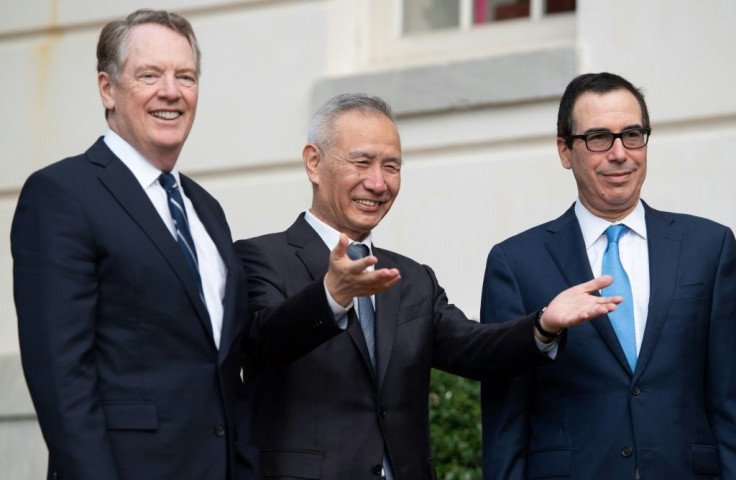China Trade Talks News: Trump Hints At Deal, Plans To Meet Chinese Negotiator At White House

President Trump teased a trade deal with China Thursday as two days of high-level talks got underway in Washington, saying he planned to meet with Beijing’s top negotiator Friday.
“They want to make a deal, but do I?” Trump tweeted as talks involving Chinese Vice Premier Liu He, U.S. Trade Representative Robert Lighthizer and Treasury Secretary Steven Mnuchin began.
Trump said he would meet with Liu Friday even though no major breakthroughs were expected.
China has indicated it wants to narrow the scope of the talks, taking demands over industrial reforms and government subsidies off the table. The U.S. is seeking agreement governing intellectual property and other national security-related issues. Trump has said he’d rather have no deal than a “bad” deal and also has rejected an agreement dealing only with agriculture issues.
The talks come ahead of next week’s deadline for 30% tariffs on $250 billion to kick in, representing a 5-point increase in the levies.
Prior to the start of the talks, the White House approved licenses for American firms doing business with Chinese telecom giant Huawei Technologies, which is on the Treasury Department’s sanctions list.
Bloomberg reported China plans to ask the U.S. to lift sanctions on the Dalian subsidiary of China COSCO Shipping Corp., which the U.S. accuses of carrying Iranian petroleum in violation of restrictions.
The White House reportedly was considering unveiling a currency pact with China as part of a preliminary deal. The U.S. has labeled China a currency manipulator to keep the yuan’s value at an artificially low level to undercut pricing from competitors. The currency agreement was worked out earlier this year before the last round of talks broke down in May.
The U.S. and China have been locked in a trade war for 18 months.
Not knowing whether a trade deal can be worked out could lead to a recession, said Rick Lear, founder and chief investment officer at Lear Investment Management.
“If there is no trade war and we move forward with no trade deal, then the world can begin to plan for the new normal,” Lear said in response to an email query. “The limbo is freezing many plans for investment and will lead to recession.”
“The uncertainty brought on by the trade war makes it very difficult for corporations to engage in true strategic planning,” Robert Johnson, professor of finance at Heider College of Business at Creighton University, agreed in another email. “And, President Trump’s negotiating style adds even more uncertainty and volatility to an extremely volatile situation.”
© Copyright IBTimes 2025. All rights reserved.






















